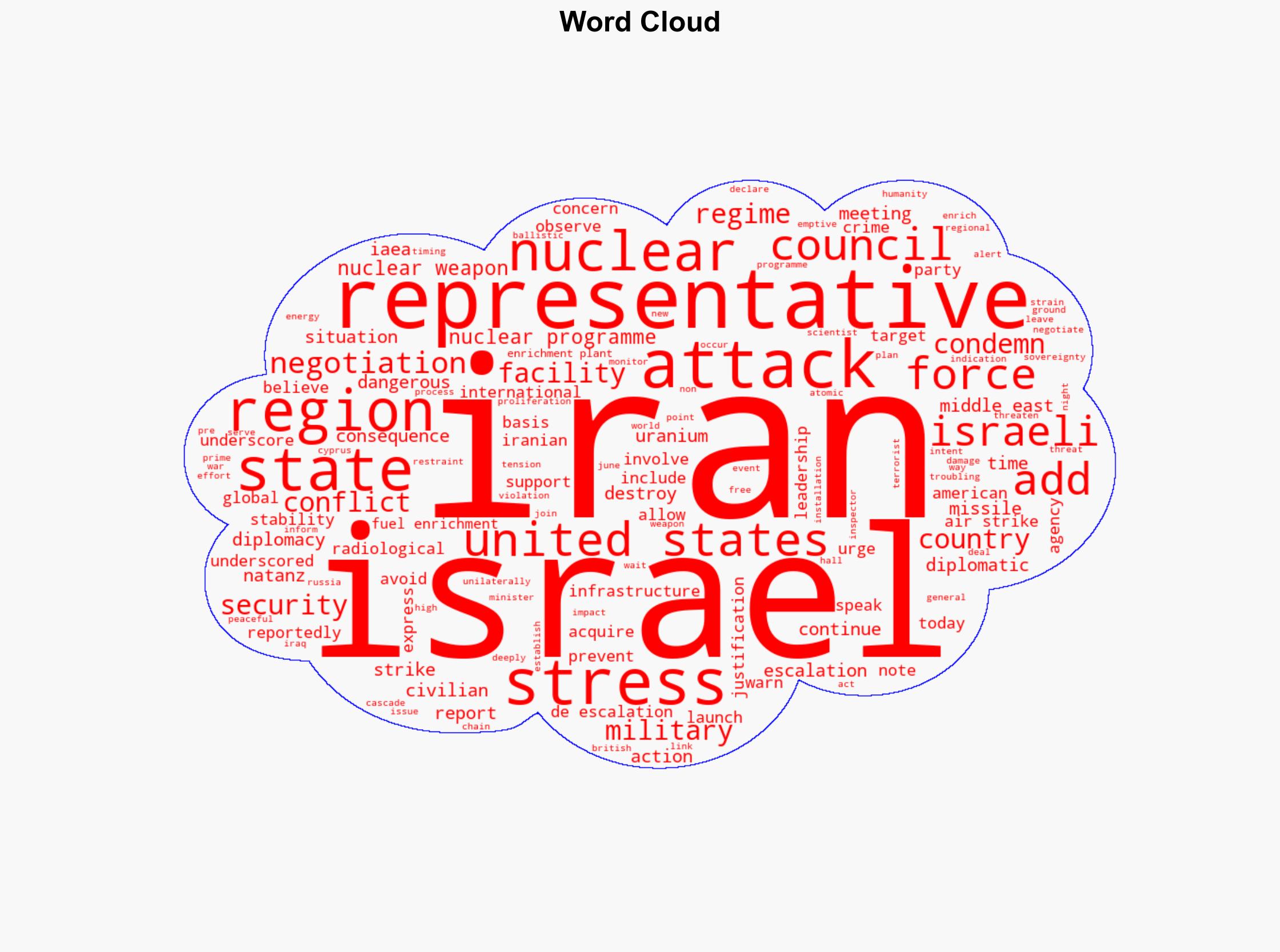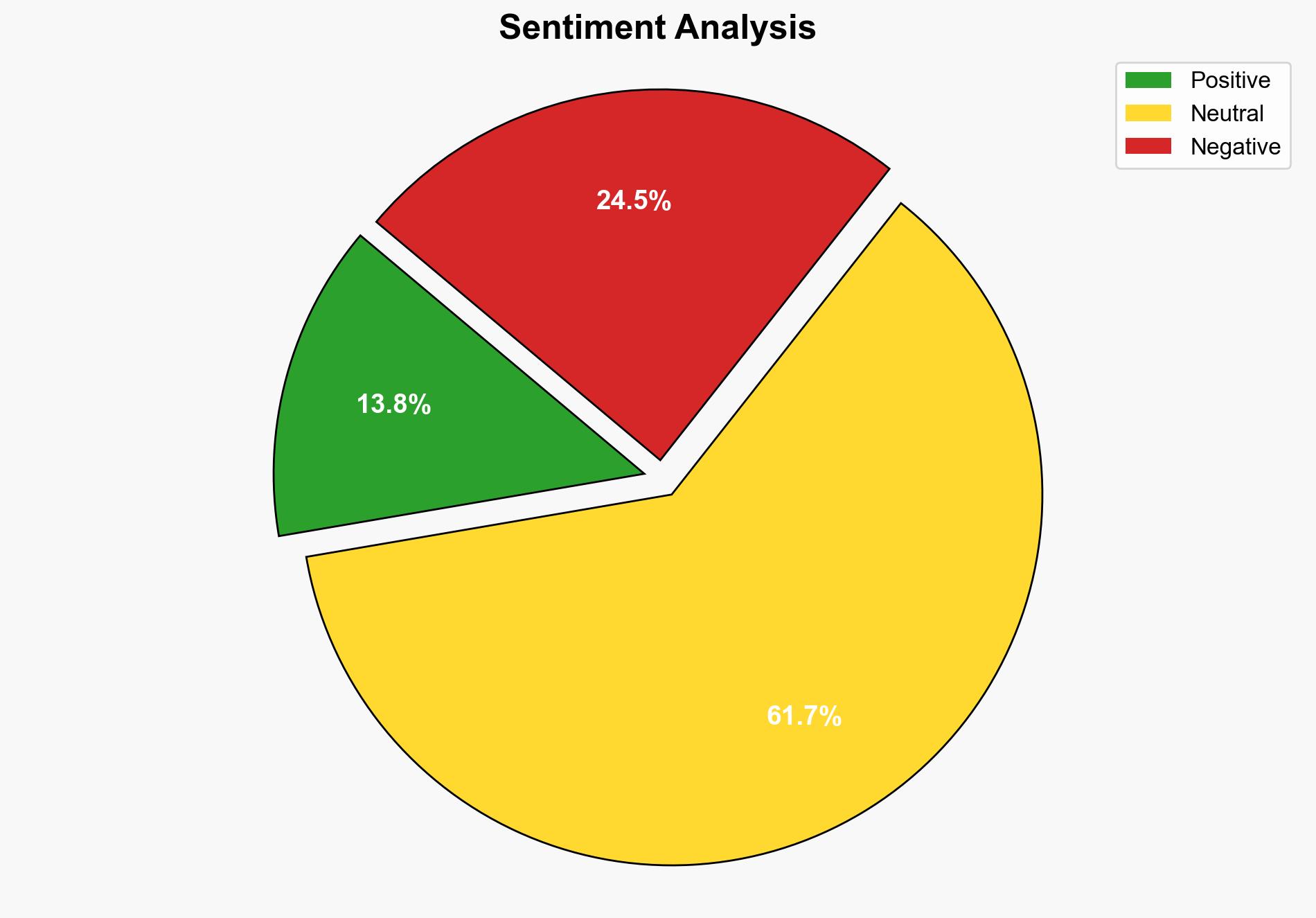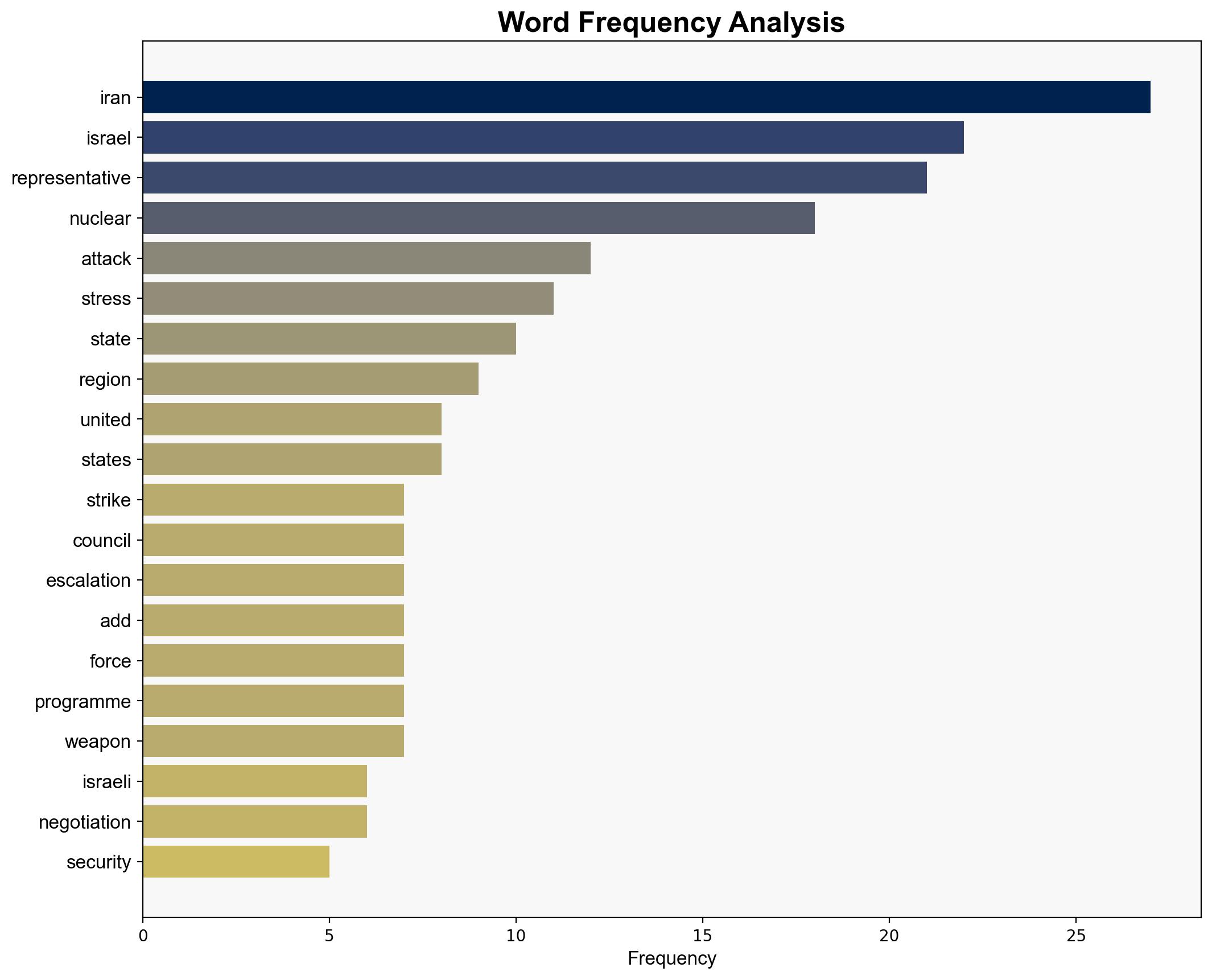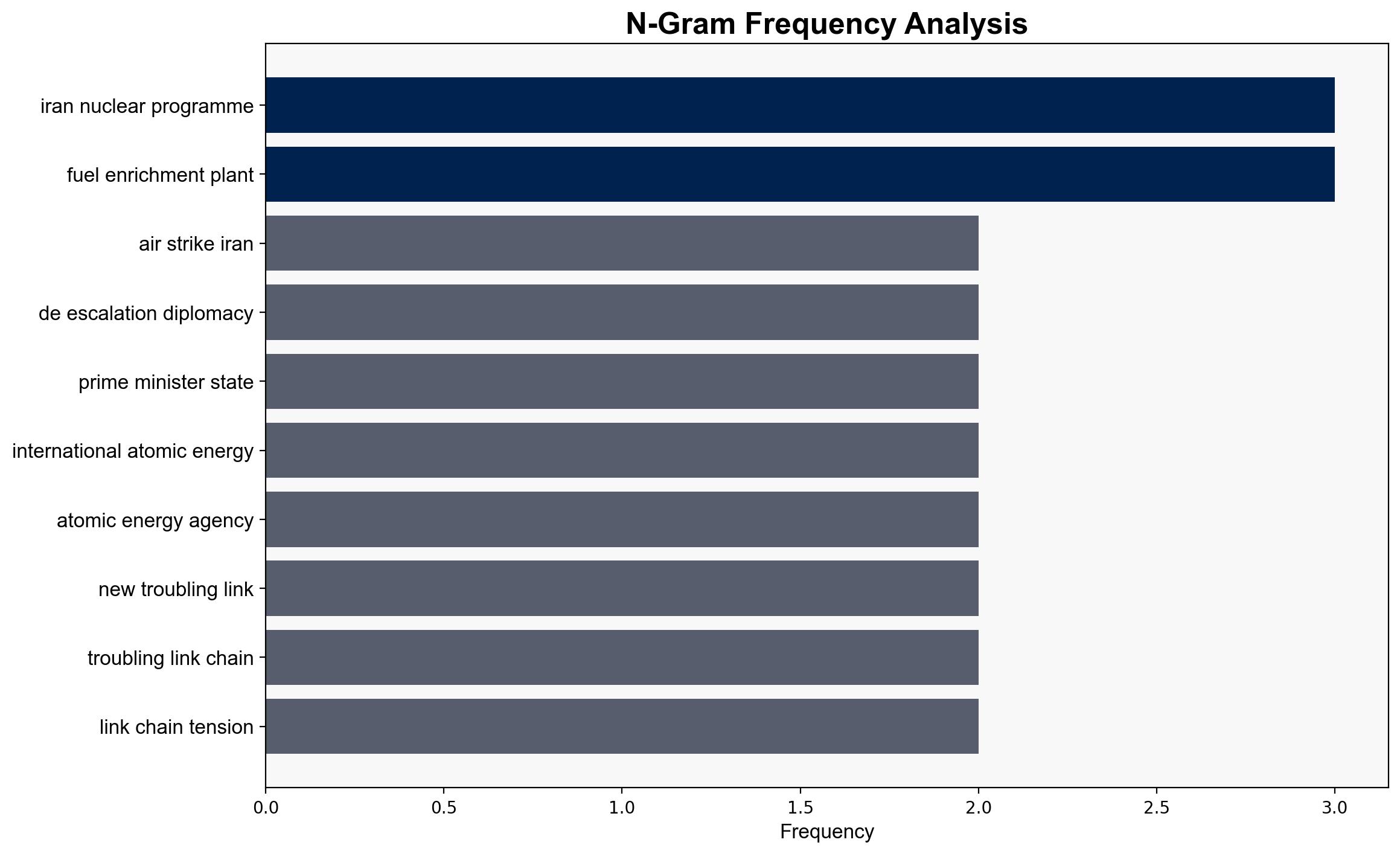Meeting in Wake of Israeli Air Strikes on Iran Delegates in Security Council Urge De-escalation Diplomacy to Prevent Further Strain in Conflict-Ridden Region – Globalsecurity.org
Published on: 2025-06-14
Intelligence Report: Meeting in Wake of Israeli Air Strikes on Iran Delegates in Security Council Urge De-escalation Diplomacy to Prevent Further Strain in Conflict-Ridden Region – Globalsecurity.org
1. BLUF (Bottom Line Up Front)
The recent Israeli air strikes on Iran have heightened tensions in an already volatile region. The UN Security Council has called for de-escalation and diplomacy to prevent further conflict. The situation poses significant risks, including potential regional destabilization and global economic impacts. Immediate diplomatic engagement is crucial to mitigate these risks.
2. Detailed Analysis
The following structured analytic techniques have been applied to ensure methodological consistency:
Causal Layered Analysis (CLA)
– **Surface Events**: Israeli air strikes targeted Iranian military and nuclear sites, prompting Iranian retaliation.
– **Systemic Structures**: Ongoing geopolitical tensions between Israel and Iran, with implications for regional alliances and security dynamics.
– **Worldviews**: Differing perceptions of existential threats and national security priorities between Israel and Iran.
– **Myths**: Historical narratives of conflict and survival influencing current policy decisions.
Cross-Impact Simulation
– **Regional Ripple Effects**: Potential for increased military engagements involving neighboring countries; economic disruptions due to heightened security measures.
– **Global Economic Dependencies**: Risk of oil market volatility affecting global supply chains and economies.
Scenario Generation
– **Best Case**: Successful diplomatic negotiations lead to a de-escalation of military activities and a framework for future dialogue.
– **Worst Case**: Escalation into broader regional conflict, drawing in additional state and non-state actors.
– **Most Likely**: Continued low-intensity conflict with intermittent diplomatic efforts, maintaining regional instability.
3. Implications and Strategic Risks
The current situation presents several strategic risks, including:
– **Political**: Potential for increased regional polarization and alignment shifts.
– **Military**: Escalation of military engagements, with risks of miscalculation leading to broader conflict.
– **Economic**: Disruptions in oil supply and increased defense spending impacting regional economies.
– **Cyber**: Heightened risk of cyber-attacks targeting critical infrastructure.
4. Recommendations and Outlook
- Enhance diplomatic engagement with key regional actors to facilitate dialogue and de-escalation.
- Strengthen intelligence-sharing mechanisms to monitor and anticipate potential escalations.
- Prepare contingency plans for economic disruptions, particularly in the energy sector.
- Scenario-based projections suggest prioritizing diplomatic solutions to prevent worst-case outcomes.
5. Key Individuals and Entities
– Rosemary DiCarlo
– Rafael Mariano Grossi
– Israeli Prime Minister
– Iranian Supreme Leader
6. Thematic Tags
national security threats, cybersecurity, counter-terrorism, regional focus





